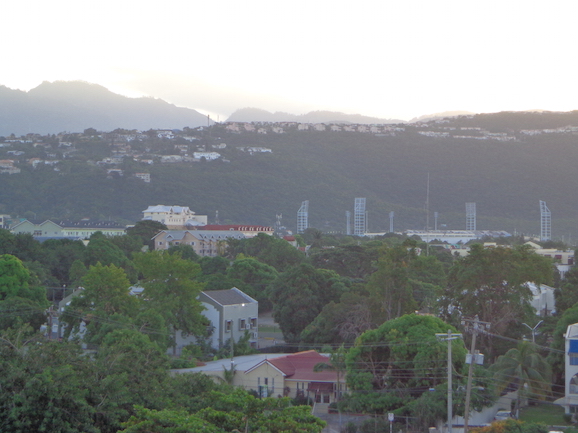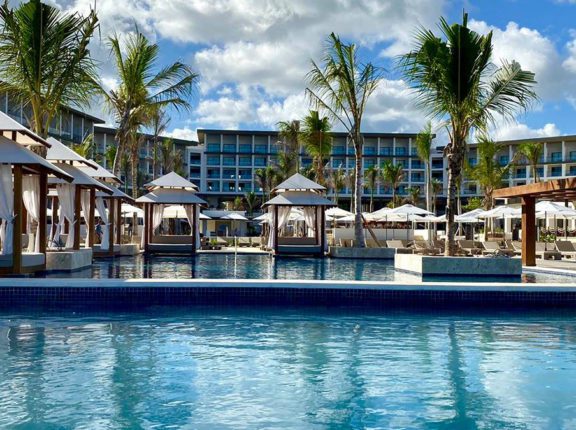By Dennis Chung
CJ Contributor
AFTER 12 previous IMF agreements, Jamaica is once again at a crossroads.
We are once again at a place where we are having a debate about how much pain is being inflicted by the agreement, with some saying that we must stay on the path of fiscal reform and others saying we must renegotiate the agreement and allow for more fiscal space for greater expenditure. Allowing for more fiscal space is of course code for a higher fiscal deficit and an increased debt to GDP ratio.
My own view is that we have been here before. In fact, since the 1970s all we have done is to postpone prudent fiscal and economic management, so that we can play the populist game and feed the welfare addiction of our political process.
By doing so, we have changed the attitude of the people from one of independence to one of being hooked on welfare through government spending — thereby creating a political culture where the supporters of the party in power get all the benefits through their party’s control of the fiscal resources.
Neo-colonial dependency
In fact, our political and social arrangements have moved us from the hopefulness of independence in 1962, to a culture of dependence on government, and the government’s own dependence on foreign governments and agencies. Our irresponsible actions have moved us into a neo-colonial dependency, where our constitution is merely an illusion of independence.
All of this is because we have failed to address the root of our economic and social issues — the continuing decline in labour productivity since around 1972 (there was a brief period of marginal improvement in the 1980s).
As a result we have sought to improve our standard of living by either “begging” (through grants) or borrowing.
We have never really paid back our debt but have just transferred our debt from one creditor to the next. By doing so we have created one big Ponzi scheme, where what we have done is rely on geometrically expanding those who will lend us money to pay back those we borrowed from before.
This trend is unsustainable, as we are now finding out, and we have come full circle — borrowing in the 1970s from multilaterals, then from the capital markets, and now back to the multilaterals. Throughout this whole process we have never controlled our own economic destiny, but have always been marching to the orders of foreign creditors.
Change needed
The question we must now ask ourselves is, do we want to continue this trend — thereby mortgaging the lives of our children the way we have done with our own lives? If the answer is yes, then we can continue to ignore the issues of productivity and needed behavioural change. If the answer is no, then we must do what is necessary to change our behaviour.
Whether it is your own personal life, a company, or a country, we can only make changes to our financial outturn by changing our behaviour patterns.
This is something that as a country we have failed to do, just like many companies and individuals. We cannot change a company’s fortune by working diligently at expanding the operations if the business model is no longer viable. And Jamaica’s business model needs change.
This is the reasoning behind the fiscal and legislative reforms under the current economic programme, and why I personally an hopeful that it will work this time.
Because in the past there has been fiscal and economic reform without legislative reform.
This is the first time we are seeking to change economic and social behaviour through legislation such as the Insolvency Act, Tax Harmonization Act, Fiscal Rule, and other criminal legislation such as DNA and Plea Bargain legislation.
This will ensure that as we apply fiscal reforms to bring about more responsible financial management, we will be ensuring behavioural change for greater competitiveness. If done properly, this will have the effect of increasing productivity for labour and capital, and will result in improving our external accounts, which is at the heart of our problems.
This adjustment is not going to be easy, primarily because we have delayed it for so long and built up a lot of “adjustment pressures”.
But if not done, then it is gong to cause much greater dislocation in the very near future. But the adjustment is not restricted to labour and capital, as government bureaucracy also needs to make the adjustment in how they think.
I refer specifically to government’s addiction to taxes, and its current struggle to change its addiction habit.
This is seen in the way taxes are introduced, which focuses on earning fiscal revenue rather than encouraging private sector and economic expansion.
So, we have seen, and continue to see, new tax policy that is devoid of the link between economic activity and fiscal expansion, rather than focusing on fiscal expansion at the expense of economic activity. This type of behaviour will result in continuing the downward spiral and cause the sacrifices already made to be in vain.
We must remember that we live in a global village and capital has no obligation to one territory.
So while we ask labour and capital to change their behaviour, the change must also take place in policy.
To the credit of the policy makers though, I have found that this attitude is changing and they have opened the door of dialogue to a greater degree than I have ever seen before, and this dialogue is taking place not just at the level of the policy makers but the executors also.
This needed change, however, is not only at the policy level but in the way we socially interact.
So things like indiscipline on the roads and persistent night noise have deleterious effects on productivity.
As an example, if we had proper order and control of crime, people would find it more palatable to use public transportation, or ride bicycles, which would cut into the more than US$2 billion spent on oil each year, and increase the spending power of labour to improve their standard of living. Or if we were to dispose of our garbage properly it would improve our health environment and reduce the money we spend on health care.
This is a conversation that we need to continue, as anything we do that does not include increasing labour and capital productivity (Total Productivity Factor) will only cause pain without benefit.
Dennis Chung is a chartered accountant and is currently Vice President of the Institute of Chartered Accountants of Jamaica. He has written two books: Charting Jamaica’s Economic and Social Development – 2009; and Achieving Life’s Equilibrium – balancing health, wealth, and happiness for optimal living – 2012. Both books are available at Amazon in both digital and paperback format. His blog isdcjottings.blogspot.com. He can be reached at drachung@gmail.com.







